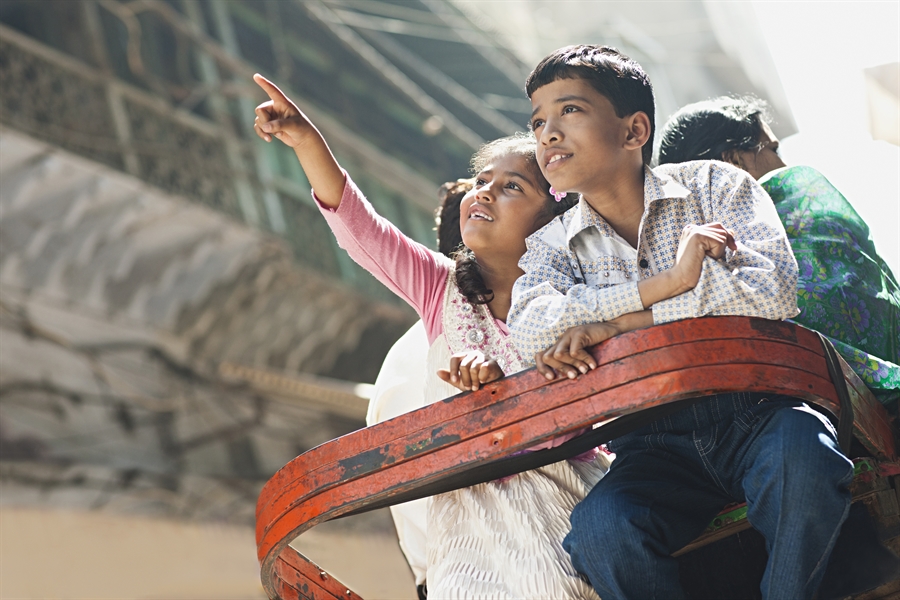
Photo: Imagesbazaar
According to Press Information Bureau of the Government of India, the Government has taken several legislative and policy measures to protect child rights in the country. It is already implementing several laws, policies and programmes for protection of child rights in the country.
Here are some of the key legislative and policy measures.
1.Enactment of Commissions for Protection of Child Rights Act
The NCPCR was set up in March 2007. The Commission’s Mandate is to ensure that all Laws, Policies, Programmes, and Administrative Mechanisms are in consonance with the Child Rights perspective as enshrined in the Constitution of India and also the UN Convention on the Rights of the Child. The Child is defined as a person in the 0 to 18 years age group. The Commission visualises a rights-based perspective flowing into National Policies and Programmes, along with nuanced responses at the State, District and Block levels, taking care of specificities and strengths of each region.
2. The Juvenile Justice (Care and Protection of Children) Act
The the seeks to enact a law by consolidating and amending the law relating to children who are in need of care and protection. It seeks to cater to their developmental needs through proper care, protection and treatment by adopting a child-friendly approach in the adjudication and disposal of matters, and for rehabilitation through processes provided and institutions established under the proposed new enactment.
3. The Prohibition of Child Marriage Act
The Prohibition of Child Marriage Act (PCMA) defines child marriage as marriage in which either the girl or the boy is underage, i.e., the girl is under 18 years of age or the boy is younger than 21 years.
4. The Protection of Children from Sexual Offences Act
The Protection of Children from Sexual Offences Act, 2012 defines a child as any person below the age of 18 years and provides protection to all children under the age of 18 years from the offences of sexual assault, sexual harassment and pornography. The Act provides for stringent punishments, which have been graded as per the gravity of the offence.
5. National Policy for Children
The constitution of India guarantees fundamental rights to all children in the country. The policy for children has been approved to help in the implementation of programmes and schemes for children all over the country. The policy gives utmost priority to right to life, health and nutrition and also gives importance to development, education, protection and participation.
6. National Early Childhood Care and Education (ECCE) Policy
The ECCE programs offer health and nutrition services for young children and promote their development. Secondly, ECCE promotes the intellectual and social development of young children, contributing to reducing the number of children dropping out at the stage of early education and improving the quality of early education programs. Thirdly ECCE centres for infants and toddlers support not only the participation of women in the workforce but also the participation in education of poor children.
7. The Right of Children to Free and Compulsory Education Rules
Every child between the ages of 6 to 14 years has the right to free and compulsory education. This is stated as per the 86th Constitution Amendment Act via Article 21A. Under the act the government schools shall provide free education to all the children and the schools will be managed by School Management Committees (SMC). Private schools shall admit at least 25% of the children in their schools without any fee.
8. Child Labour (Prohibition & Regulation) Amendment Bill
The bill prohibits the engagement of children in certain types of occupations and regulates the condition of work of children in other occupations. The Act prohibits employment of children below 14 years in certain occupations such as automobile workshops, bidi-making, carpet weaving, handloom and power loom industry, mines and domestic work. In light of the Right of Children to Free and Compulsory Education Act, 2009, the Bill seeks to prohibit employment of children below 14 years in all occupations except where the child helps his family after school hours. The bill enhances the punishment for employing any child in an occupation. It also includes penalty for employing an adolescent in a hazardous occupation.
The Government of India has also implemented following schemes to protect child rights.
Integrated Child Protection Scheme (ICPS) in 2009.
Indira Gandhi MatritvaSahyogYojana (IGMSY), 2010.
Rajiv Gandhi Scheme for Empowerment of Adolescent Girls (Sabla), 2010.
Restructured Integrated Child Development Scheme (ICDS), 2012.
Rajiv Gandhi National Creche Scheme
Ujjawala
Childline and Track Child.
Multi-sectoralprogramme to address Maternal and Child under nutrition
BetiBachao, BetiPadhao.
RashtriyaBalSwasthyaKaryakaram (RBSK) launched in 2013.
The Government is committed to continually reviewing programmes, with a view to making them more impactful and efficient, in their structure and their implementation.
Please like FamiLife’s page on Facebook so that you get all our articles and others may find us.
